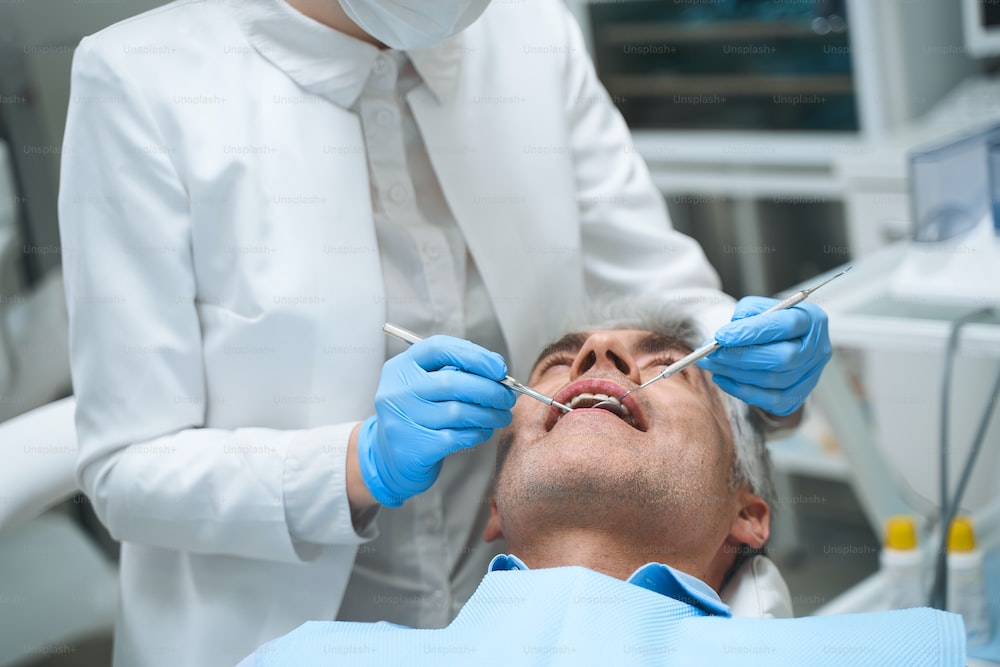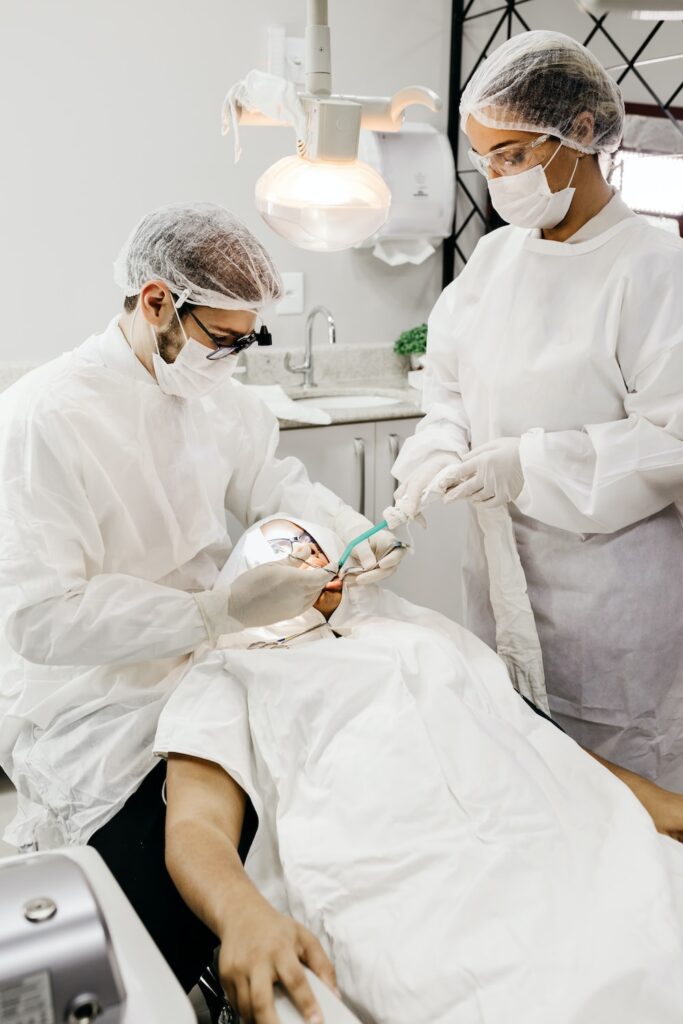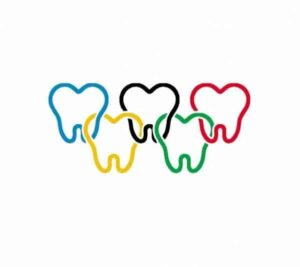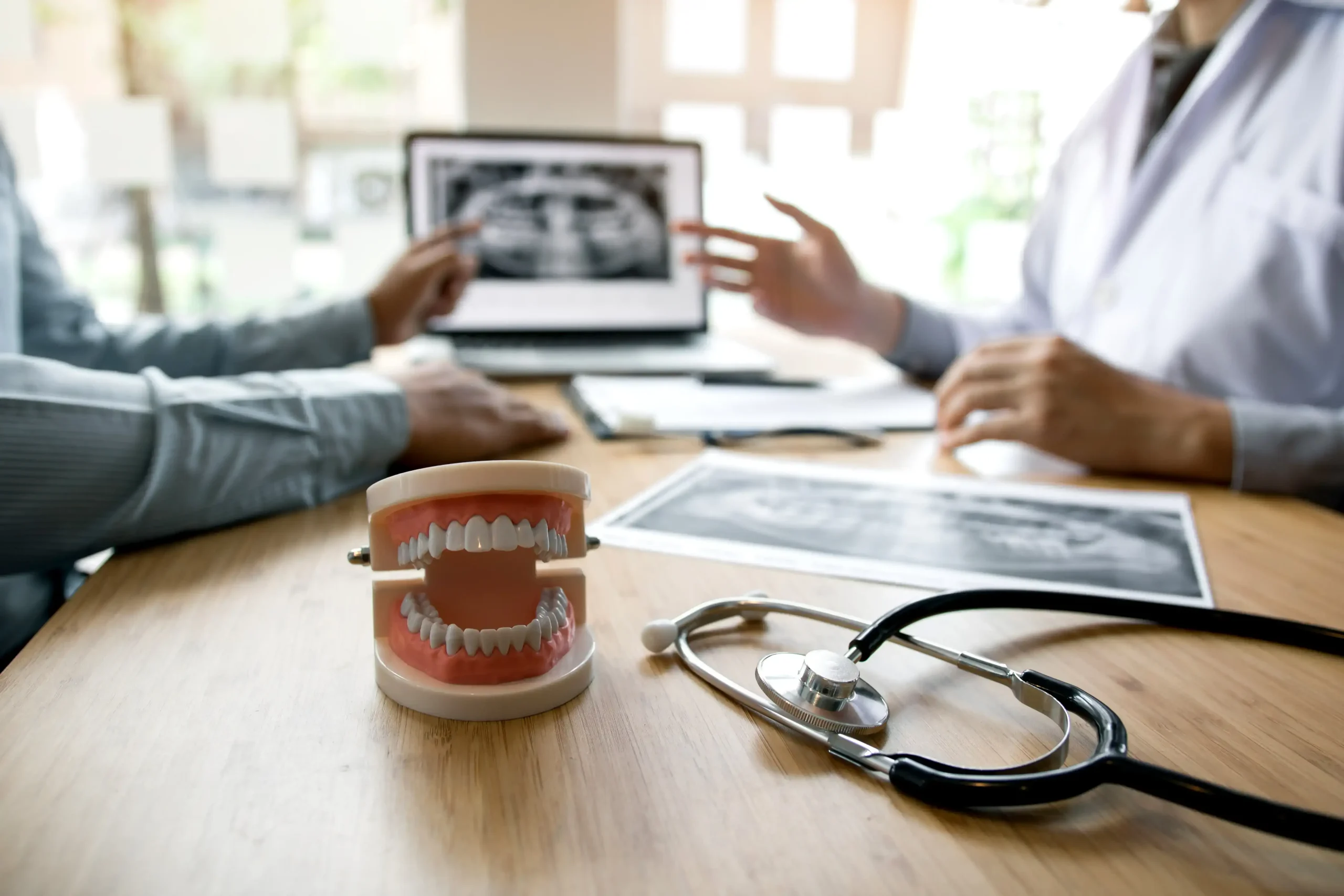Dorset Dental provides urgent dental care services for the immediate treatment of dental emergencies in Scarborough. With a team of experienced dental professionals, they offer prompt and effective solutions to alleviate pain and address urgent oral health issues, ensuring patients receive timely and appropriate care.
In addition to emergency dental treatments in Scarborough, Dorset Dental also offers a range of preventive, restorative, and cosmetic dental services to maintain long-term oral health and enhance the appearance of your smile. Whether you have a severe toothache, broken tooth, or any other dental emergency, Dorset Dental is committed to providing quality dental care when you need it most.

Signs And Symptoms of Dental Emergencies
Recognizing the signs and symptoms is crucial for timely intervention and treatment of dental emergencies. Ignoring these signals can lead to further complications and potential long-term damage. If you are experiencing any of the following signs, it is important to seek immediate dental attention.
Severe toothache that doesn’t subside
A severe and persistent toothache is often an indication of an underlying dental emergency. If the pain becomes unbearable and does not subside even after taking over-the-counter pain medication, it is essential to schedule an appointment with a dentist as soon as possible. Ignoring the pain could potentially lead to more serious issues such as tooth infections or abscesses.
Swelling in the gums or jaw
Swelling in the gums or jaw can be a sign of various dental emergencies. This swelling may occur due to infections, gum disease, or even a dental abscess. If you notice any abnormal swelling that is causing discomfort or interfering with your ability to eat or speak, it is important to seek immediate dental care. Ignoring the swelling can worsen the condition and potentially lead to the spread of infection.
Broken or chipped tooth
A broken or chipped tooth can not only cause pain but also affect the overall appearance and functionality of your smile. Whether it’s a result of a sports injury, an accident, or biting down on a hard object, seeking prompt dental treatment is essential. Dentists can evaluate the extent of the damage and recommend appropriate treatment options to restore the tooth’s structure and prevent further complications.
Knocked-out tooth
If a tooth gets knocked out due to trauma or injury, it requires immediate attention to increase the chances of successful re-implantation. It is crucial to handle the tooth carefully, avoiding touching the root, and rinsing it gently with water if it’s dirty. Placing the tooth back in its socket or storing it in milk or saline solution can help preserve the tooth until you reach the dentist. Time is of the essence, so it’s important to seek dental care within 30 minutes for the best chance of saving the tooth.
In case of any dental emergency, reaching out to an emergency dentist in Scarborough ensures prompt and expert care. Keeping calm, following proper steps, and seeking immediate attention can help prevent further damage and resolve the issue effectively.
Immediate Actions for Dental Emergencies
Dental emergencies can happen at any time and can be quite distressing. Whether it’s a severe toothache, a knocked-out tooth, or a broken tooth, taking immediate action is crucial in these situations. Acting swiftly can make a significant difference in preventing further damage and relieving pain. Here are some immediate actions you can take for dental emergencies:
Rinse the mouth with warm water
One of the first things you should do when faced with a dental emergency is to rinse your mouth with warm water. This helps remove any debris or foreign particles that may be causing irritation or discomfort. Gently swish the water around your mouth, making sure to reach all areas, including the affected tooth or area. Remember not to use hot water, as it may cause additional pain or thermal damage.
Apply a cold compress to reduce swelling
If you’re experiencing swelling or facial trauma due to a dental emergency, applying a cold compress can help alleviate the inflammation. Simply take a clean cloth or ice pack and place it on the affected area for about 15 minutes. The cold temperature helps constrict blood vessels, reducing swelling and providing temporary relief. Repeat this process every few hours as needed, but always make sure to wrap the cold compress in a towel or cloth to avoid direct contact with the skin.
Save any knocked-out tooth
If a tooth has been knocked out due to an accident or injury, you should act quickly to increase the chances of saving it. Carefully pick up the tooth by the crown (the top part) and try not to touch the roots. If the tooth is dirty, you can rinse it with milk or saliva, but avoid scrubbing or using any cleaning agents. Then, place the tooth back into its socket if possible. If this isn’t possible, keep the tooth moist by placing it in a container with milk or your saliva. It’s essential to seek immediate dental care in order to have the best chance of successfully reattaching the tooth.
Use dental wax to cover a broken or sharp tooth
In the event of a broken or sharp tooth, you can use dental wax to cover and protect the affected area temporarily. Dental wax is a safe and easily accessible material that can be obtained from a local pharmacy or dental clinic. Simply take a small piece of dental wax and mold it over the broken or sharp part of the tooth, creating a barrier between the tooth and your mouth. This helps prevent further injury and discomfort until you can see a dentist for a more permanent solution.
Seeking Emergency Dental Care in Scarborough
Experiencing a dental emergency can be a stressful and painful situation. Whether it’s a severe toothache, a knocked-out tooth, or a broken crown, getting immediate dental care can make a significant difference in alleviating the pain and preventing further damage. If you find yourself in need of emergency dental care in Scarborough, it’s crucial to know how to navigate the process effectively. In this blog post, we will guide you through the steps of seeking emergency dental care, from choosing a clinic to arranging transportation if needed.
Choosing an Emergency Dental Clinic
When faced with an urgent dental issue, it’s important to find a reliable emergency dental clinic that caters to your specific needs. Take the following factors into consideration when choosing the right clinic:
- Proximity: Look for a clinic near your location to minimize travel time and ensure quick access to care. Search for phrases like “emergency dental clinic near me” or “emergency dental Scarborough” to find the closest options.
- Operating Hours: Check the clinic’s business hours to verify if they offer emergency dental services during evenings, weekends, and public holidays.
- Expertise: Ensure the clinic has experienced dentists who specialize in handling dental emergencies. Look for indications of expertise such as advanced training or specific certifications.
By considering these factors, you can find a trustworthy emergency dental clinic that will provide you with efficient and effective care.
Contacting the Dentist
Once you have identified a suitable emergency dental clinic, the next step is to reach out to the dentist immediately. Prompt communication is crucial in getting timely care for your dental emergency. Here are the steps to follow:
- Find the contact information: Look for the clinic’s phone number or email address on their website.
- Call the clinic directly: For immediate attention, it’s best to call the clinic instead of relying on email or online forms.
- Explain the urgency: Clearly describe your dental emergency, emphasizing the severity of the issue to ensure the dentist understands the urgency of your situation.
By promptly contacting the dentist and providing clear information about your emergency, you can expedite the process of receiving the necessary care.
Providing Details About the Emergency
When speaking with the dentist or their staff, it’s essential to provide as much detail as possible about your dental emergency. This information will help the dentist assess the situation accurately and prepare the necessary resources. Make sure to include:
- Type of emergency: Describe the nature of your dental issue, whether it’s a severe toothache, a broken tooth, a knocked-out tooth, or another concern.
- Level of pain or discomfort: Indicate the intensity of the pain you are experiencing to help the dentist gauge the urgency of your situation.
- Any accompanying symptoms: If you are experiencing additional symptoms like swelling, bleeding, or difficulty speaking or eating, inform the dentist about them.
By providing these details about your dental emergency, you enable the dentist to better assess your situation and determine the most appropriate course of action.
Arranging Transportation if Needed
In some situations, your dental emergency may require immediate transportation to the clinic. If you are unable to drive or need assistance, it’s important to arrange transportation promptly. Consider the following options:
- Family or friends: Reach out to someone you trust who can drive you to the emergency dental clinic.
- Rideshare services: Utilize rideshare apps like Uber or Lyft to quickly get to the clinic.
- Emergency medical services: If your dental emergency is severe or accompanied by other health concerns, consider calling emergency services for transportation.
By arranging transportation in a timely manner, you ensure that you can reach the clinic without unnecessary delays, allowing the dentist to provide the prompt care you need.
Seeking emergency dental care in Scarborough doesn’t have to be a daunting task. Remember to choose a reputable emergency dental clinic, contact the dentist immediately, provide clear details about your emergency, and arrange transportation if necessary. By following these steps, you can receive the urgent dental care you need swiftly and effectively.
Common Dental Emergencies and Treatment Options
Toothache: causes and treatment
A toothache can be incredibly painful and is often a sign of an underlying dental issue. Common causes of toothaches include dental caries (cavities), gum disease, dental trauma, and tooth abscess. If you are experiencing a toothache, it is important to seek dental care immediately to identify the cause and provide appropriate treatment.
Treatment for a toothache may vary depending on the cause. One of the first steps your dentist may take is to conduct a thorough examination of the affected tooth, including diagnostic tests such as X-rays. Once the cause is identified, treatment options may include:
- Filling the cavity or performing a root canal treatment.
- Prescribing pain medication or antibiotics to alleviate discomfort or infection.
- Recommending a dental cleaning or periodontal treatment for gum disease.
- Extracting the tooth if it is severely damaged and cannot be saved.
Cracked or broken tooth: restoration options
A cracked or broken tooth can occur due to various reasons, such as trauma to the mouth, biting down on a hard object, or dental decay weakening the tooth structure. Regardless of the cause, it is important to treat a cracked or broken tooth promptly to prevent further damage and potential infection.
Your dentist may suggest one of the following restoration options:
- Repairing the tooth with dental bonding material.
- Placing a dental crown to protect the remaining tooth structure.
- Performing a root canal treatment if the crack has reached the pulp of the tooth.
- Extracting the tooth if it is beyond repair.
Knocked-out tooth: reimplantation procedures
A knocked-out tooth, also known as an avulsed tooth, requires immediate attention as the chances of successful reimplantation decrease rapidly with time. If you have had a tooth knocked out, follow these steps:
- Pick up the tooth carefully by the crown, avoiding direct contact with the root.
- Rinse the tooth gently with water, but do not scrub or remove any tissue fragments attached to it.
- If possible, try to reinsert the tooth into its socket, making sure it is facing the correct way.
- If reinsertion is not possible, place the tooth in a clean container with milk or a special tooth preservation solution.
- Seek emergency dental care immediately to increase the chances of successful reimplantation.
Abscess: draining and antibiotics
An abscess is a pocket of pus that forms due to a bacterial infection. It can cause severe pain and swelling, often accompanied by fever. If you suspect you have a dental abscess, it is important to seek immediate treatment, as the infection can spread to other parts of the body.
Treatment for a dental abscess may involve:
- Draining the abscess to relieve pain and pressure.
- Prescribing antibiotics to eliminate the infection.
- Suggesting a root canal treatment or tooth extraction, depending on the severity of the infection.
- Providing instructions on how to maintain good oral hygiene to prevent further infections.
Lost filling or crown: replacement options
If you have lost a filling or crown, it is essential to seek dental care as soon as possible. Without proper restoration, the underlying tooth structure may become vulnerable to further damage and infection.
Your dentist may recommend one of the following replacement options:
- Replacing the filling or crown with a new restoration.
- Performing a root canal treatment if the tooth has been extensively damaged.
- Suggesting a dental implant or bridge if the tooth cannot be restored.
Preventing Dental Emergencies in Scarborough
When it comes to dental emergencies, prevention is always better than cure. Taking a few simple precautions can go a long way in protecting your teeth and avoiding any unforeseen emergencies. In this article, we’ll discuss some key measures you can take to prevent dental emergencies in Scarborough.
Maintaining good oral hygiene
Prioritizing good oral hygiene is crucial in preventing dental emergencies. By following a consistent oral care routine, you can keep your teeth and gums healthy and strong.
Here are some tips to maintain good oral hygiene:
- Brush your teeth at least twice a day using fluoridated toothpaste.
- Floss daily to remove plaque and food particles from between your teeth.
- Rinse your mouth with an antiseptic mouthwash to kill bacteria and freshen your breath.
- Visit your dentist regularly for professional cleanings and check-ups.
- Avoid smoking or using tobacco products, as they can significantly increase the risk of dental problems.
Avoiding hard foods and habits that can damage teeth
Your eating habits and lifestyle choices can play a significant role in preventing dental emergencies. By avoiding hard foods and habits that can damage your teeth, you can reduce the risk of dental injuries.
Here’s what you should do:
- Avoid biting down on hard candies, popcorn kernels, or ice cubes, as they can cause tooth fractures or chips.
- Minimize your intake of sugary and acidic foods and drinks, as they can weaken your tooth enamel.
- Refrain from opening packaging or bottles with your teeth, as this can lead to tooth fractures or even dislocation.
- If you grind or clench your teeth, consider using a mouthguard at night to protect your teeth from wear and tear.
Wearing mouthguards during physical activities
If you’re involved in sports or any physical activities that carry a risk of dental injuries, wearing a mouthguard is essential. A mouthguard acts as a protective barrier, shielding your teeth and gums from potential harm.
Take note of these guidelines:
- Invest in a custom-fitted mouthguard that offers superior protection and comfort.
- Wear your mouthguard each time you engage in contact sports or activities like skateboarding, hockey, or martial arts.
- Ensure your mouthguard is in good condition and replace it if it becomes worn or damaged.
- Follow proper care and cleaning instructions for your mouthguard to maintain its effectiveness.
By maintaining good oral hygiene, avoiding hard foods and harmful habits, and wearing mouthguards during physical activities, you can significantly reduce the risk of dental emergencies in Scarborough. Taking these preventive measures will not only protect your oral health but also save you from unnecessary pain and stress in the future.
What Is A Dental Emergency?
A dental emergency refers to any sudden and unexpected dental issue that requires immediate attention. It could include severe toothache, chipped or broken tooth, knocked-out tooth, lost filling or crown, or an abscess. Prompt treatment is crucial to prevent further complications and alleviate pain.
What Should I Do in A Dental Emergency?
In case of a dental emergency, it is important to stay calm and contact your dentist immediately. Rinse your mouth with warm water, apply a cold compress to reduce swelling, and if a tooth is knocked out, try to gently place it back in its socket. Avoid taking painkillers directly in the affected area without professional advice.
Can A Chipped Tooth Be Fixed?
Yes, a chipped tooth can often be fixed by your dentist. Treatment options may vary depending on the severity of the chip. Dental bonding, dental veneers, or dental crowns are commonly used to restore the appearance and function of a chipped tooth, providing you with a natural-looking smile again.
What If I Have A Severe Toothache?
If you experience a severe toothache, rinse your mouth with warm water and gently floss to remove any debris that may be causing the pain. Avoid placing aspirin directly on the affected area. Contact your dentist as soon as possible to determine the underlying cause and receive appropriate treatment.
Final Thoughts
It requires immediate attention to prevent further damage and alleviate pain. By seeking prompt dental care, Scarborough residents can receive timely treatment for issues such as toothaches, broken teeth, and gum injuries. Professionals of Dorset Dental are available to handle emergencies and provide the needed dental services to ensure oral health and well-being. When faced with a dental emergency, don’t hesitate to reach out for professional assistance.




